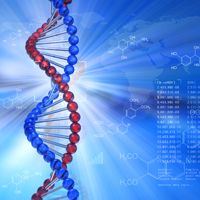Article
DNA Changes Distinguish Patients with Rheumatoid Arthritis
Author(s):
For the first time, disease-specific genetic changes have been connected with rheumatoid arthritis.

For the first time, disease-specific genetic changes have been connected with rheumatoid arthritis.
Alterations to certain joint fluid cells were identified by lead author William Farrell, BSc, PhD, and researchers from various institutions. It was discovered that abnormal phenotype of fibroblast-like synoviocytes (FLS) is a unique feature in patients with rheumatoid arthritis.
Previous research used joint tissue gathered during surgery to study gene changes. However, the recent findings were detailed through a genome-wide DNA methylation and fluid-derived FLS analysis. Over 20,000 individual genes were profiled in order to make the distinction.
“Many patients with rheumatoid arthritis have swollen joint and the fluid is taken off to relieve the symptoms of the disease,” Farrell, of Keele University, said in a news release. “However, they provide a source for the collecting (‘harvesting’) of these cells surrounding of the diseased joint.”
The team examined the FLS fluids from 5 patients with rheumatoid arthritis and 6 with osteoarthritis. Using the Human Methylation 450 Bead Chip and bisulfite pyrosequencing, they were able to identify changes to the DNA epigenome in joint fluid cells.
A total of 328 CpGs, which came to 195 genes, were found to be different between the patients with rheumatoid arthritis and osteoarthritis, according to the report documented in Epigenomics. Pyrosequencing verified these findings. In addition, results from 2 studies using tissue as opposed to fluids, had 73 genes in common with the current research.
“We are the first to publish these types of findings and, importantly it offers the opportunity to not only monitor the progress of the disease but also to determine if particular drugs/treatment are having an effect,” Farrell concluded.
Not only do the discoveries provide a stepping stone for new treatments, but they also support the use of fluid-derived FLS in the future.





